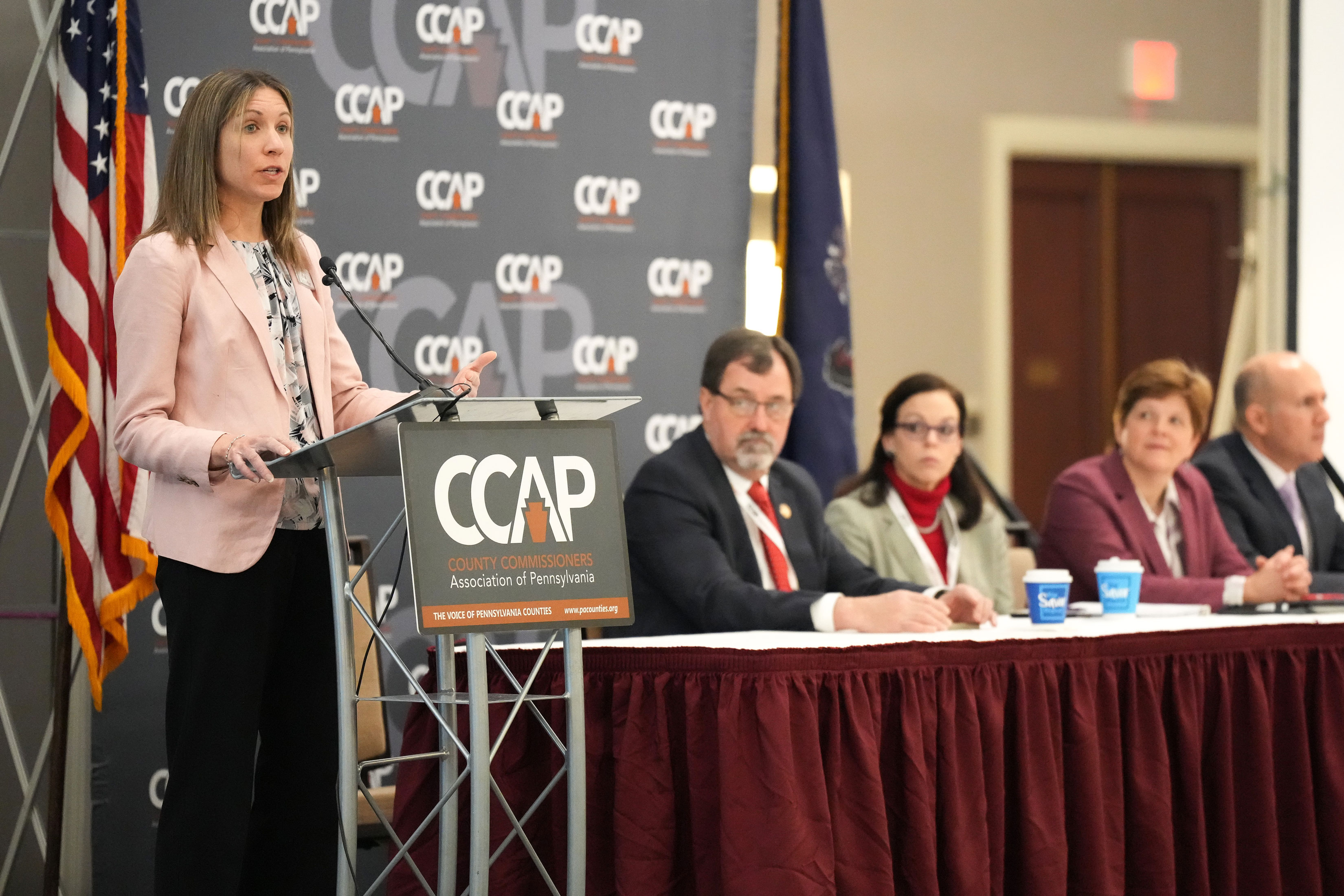Policy
The Explainer: Defining the difference between a town, borough and city
When it comes to Pennsylvania localities, a whole lot of defining and codifying goes into determining where you live.

Philadelphia is the only city with a first-class classification in Pennsylvania. JOE DANIEL PRICE/GETTY IMAGES
It’s easy to lose track of who does what when it comes to local government in Pennsylvania.
With mayors, county commissioners, township supervisors, school board directors, borough council members and local municipal authorities all playing a role in how local responsibilities get carried out, navigating the world of municipal and other government entities can prove complex.
In an effort to demystify the various boards, councils and authorities that impact the daily lives of Pennsylvanians, City & State has put together a primer on what you need to know to better understand the ever-evolving landscape of local government throughout the commonwealth.
A labyrinth of local layers
If you live in Pennsylvania, you also live in one of 67 counties – and in one of the state’s 500 school districts – and in one of 2,560 municipalities.
And all of them have their own governmental bodies running the show.
That means, in addition to having one state representative and one state senator, every Pennsylvanian has government officials representing them at the county level, the municipal level and at the school board level.
Every municipality, be it a county, a city, a borough or a township, is governed by one of several municipal codes – the state laws that outline the scope and power of municipal governments.
“Here in Pennsylvania, we have these layers of local government where you simultaneously live in a county, a municipality, the school district – but we all do different things,” said Lisa Schaefer, the executive director of the County Commissioners Association of Pennsylvania, an organization that advocates on behalf of county commissioners at the state level.

Those different layers of government are largely based on population – as the Pennsylvania Constitution gives state lawmakers the ability to classify municipalities based on the number of people within their borders.
In addition to the state’s 67 counties and 500 school districts, there are 2,560 municipal corporations across the state – a figure that includes 56 cities, 956 boroughs, 93 first-class townships, 1,454 second-class townships and one town, according to the Pennsylvania Local Government Commission.
Counties
Except in the case of Philadelphia, which is both a county and a city in and of itself, counties are typically run by county commissioners and provide a slew of services to residents.
“Counties are really the level of local government that implements most of the services you see on a daily basis,” Schaefer said, noting that counties provide human services, run local courts, operate jails, handle certain infrastructure needs and administer elections.
“We laugh a little bit but it’s kind of true – everything except for schools and potholes really falls to the county. That’s an exaggeration, certainly, but it gives you an idea of the perspective,” Schaefer said.
Schaefer said it’s likely that a lot of people don’t realize the full breadth of county government unless they engage directly with an aspect of it, adding that state and federal funding make up a significant portion of county budgets, and that the property tax is one of the only ways counties bring in general fund revenue.
Municipal corporations
Other services not handled by counties – like local infrastructure, parks and other priorities – are provided at the city, township, town or borough level – entities collectively known as municipal corporations.
“The municipality is really about providing for public safety, for infrastructure, public works, parks, recreation and the functions of government – the administration of the government itself,” said John Brenner, the executive director of the Pennsylvania Municipal League. “So those are the tests that our local people have.”
The difference between cities, boroughs, townships and the commonwealth’s lone town largely comes down to population – and each classification is afforded different powers and limits under the state’s municipal codes laws.

While the Pennsylvania Constitution gives the state legislature the ability to classify counties, cities, boroughs, school districts and townships, local governments do have the option to adopt home rule charters, which are the governing documents that outline a municipal corporation’s structure, powers and duties.
Home rule charters effectively transfer the municipal affairs from state law – as written by the General Assembly – to a local charter approved by voters, according to the Pennsylvania Department of Community & Economic Development.
The home rule option was first made available in 1922, but it wasn’t implemented by a Pennsylvania municipality until voters approved Philadelphia’s home rule charter in 1951, according to a handbook on home rule published by DCED. To date, a total of 89 municipalities have adopted home rule charters, ranging from Philadelphia and Pittston to Erie and Easton.
As for Bloomsburg, the state’s only incorporated town, local government experts said the municipality’s unique status doesn’t have too much of a material impact on their day-to-day operations.
As a town, Bloomsburg at times has had to abide by different statutory requirements than boroughs, though a provision in Title 8 allows incorporated towns to effectively adopt certain provisions of the state’s Borough Code, according to the Local Government Commission.
But much like other boroughs, Bloomsburg has its own fire and police departments, boards and commissions, and is led by a six-person town council and the mayor, who serves as the body’s presiding officer.
Municipal authorities
Separate from municipalities are what are colloquially known as municipal authorities.
According to the DCED, municipal authorities are “governmental bodies created to finance and/or operate specific public works projects without tapping the general taxing powers of the municipality.”
Municipal authorities are different from municipalities in that they are appointed, not elected, and can levy special assessments against properties, levy user fees and can use eminent domain to acquire real estate, according to DCED.

Municipal authorities come in the form of airport authorities, parking authorities, transit authorities and water and sewer authorities. DCED estimates that there are more than 1,500 active municipal authorities in the state.
Municipal authorities are typically limited in function by their respective articles of incorporation, according to DCED.
School boards
There are also school boards for all 500 public school districts in the state, which – except in the case of Philadelphia – are made up of elected school board directors who make policies and develop budgets for the district.
The powers and duties of school board directors are outlined in the state’s Public School Code. School board directors approve budgets for the district, establish curriculum requirements, and set health and safety protocols.
In recent years, school boards across the commonwealth have grappled with contentious, hot-button fights over safety protocols during the COVID-19 pandemic, as well as ongoing debates over whether to ban books from libraries and classrooms.
Getting Stuff Done
Traditionally, Americans have tended to trust local government leaders more than their counterparts at the state and federal levels, according to data collected by Gallup.
Between 1997 and 2021, an average 70% of Americans said they had either a great deal of trust or a fair amount of trust in the ability of local government to handle local problems. When asked about their level of trust in state government to handle state issues, 62% of Americans expressed a level of trust in state officials. That number dropped to below 60% for the federal government.
Schaefer said she believes that county government remains less political than government at the state and federal levels, improving trust – though she said county officials have faced political pressure about election administration in recent years.
“More often than not at the local level, our local officials tend to check their politics at the door – and focus more on implementing services and those sorts of things,” she said. “When you’re interacting with the county, you’re not hearing about the politics behind things a lot.”
Brenner agreed, stressing that local government officials are committed to providing “good quality services.”
“These are people that you know by name often when you walk down the street,” he said. “They don’t follow talking points from a party. Most of these people are not interested in left or right politics. They’re only interested in getting stuff done in their local community.”
And for those interested in learning more about local government – there are plenty of opportunities to learn firsthand, from volunteering to serve on boards, commissions and authorities to following municipal meetings and inspecting meeting minutes.
“Be aware, show up, get involved,” Brenner said.
